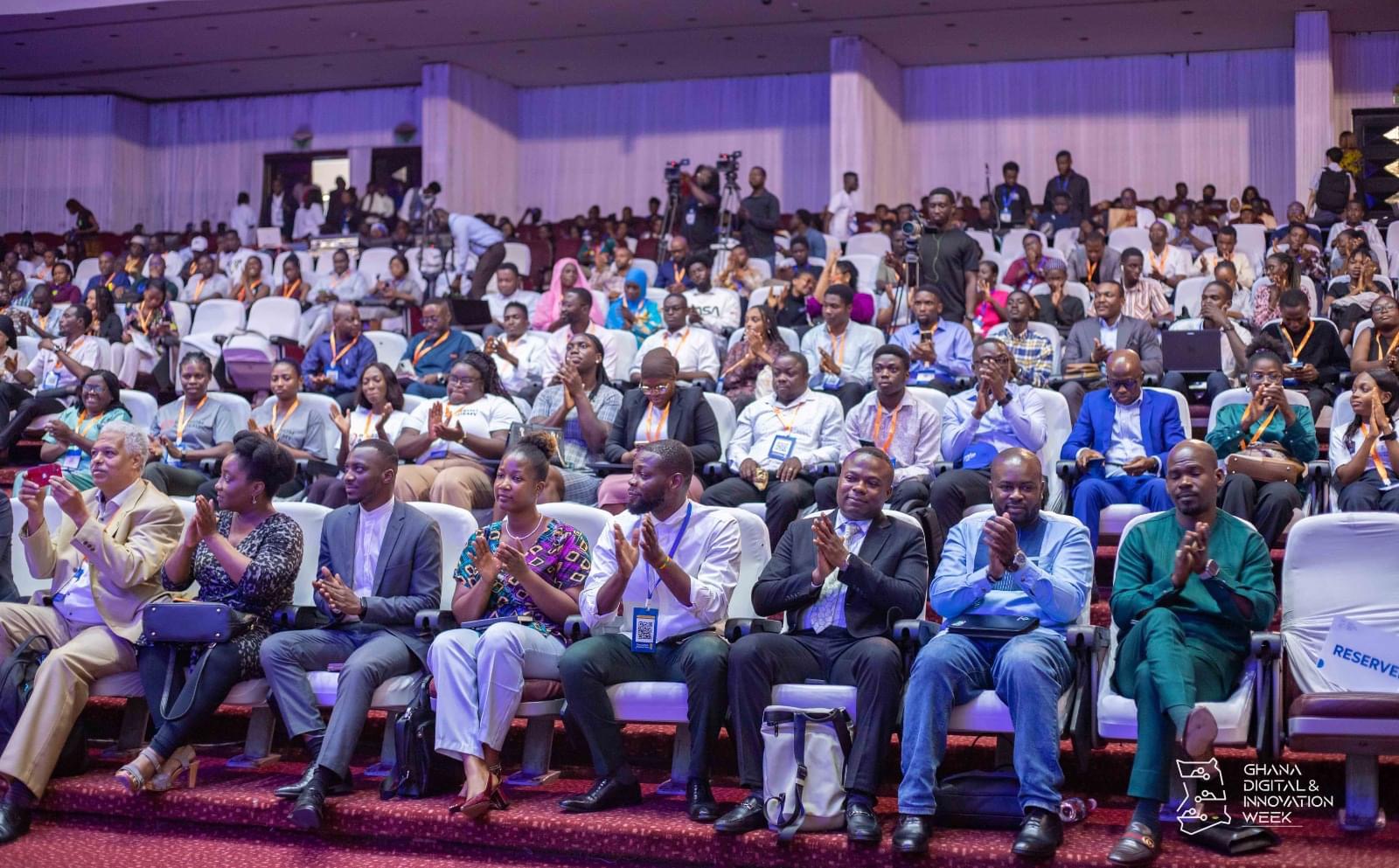Last week, We had the opportunity to attend the Ghana Digital and Innovation Week conference, a remarkable event that took place in Accra. From the moment I walked into the venue, it was clear that this year’s edition was not just a showcase of Ghana’s digital transformation journey, but a celebration of Africa’s broader innovation landscape.
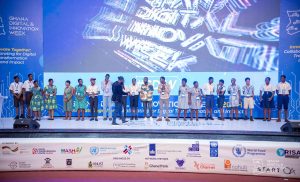
The conference brought together tech innovators, entrepreneurs, policymakers, and thought leaders from across Ghana and beyond, all focused on how digital technologies can drive sustainable growth and address critical socio-economic challenges. The energy was palpable, and we left feeling inspired by the collective drive toward making technology a core component of Ghana’s future.
Day 1: Enabling Digital Transformation
The first day set the stage for understanding how Ghana is positioning itself as a leader in digital transformation. The opening keynote by Hon. Ursula Owusu-Ekuful, Ghana’s Minister of Communications and Digitalization, was a powerful reflection on the country’s journey toward becoming a digital economy. She emphasized Ghana’s commitment to leveraging technology to improve access to services, boost entrepreneurship, and foster economic inclusion, particularly for women and youth.
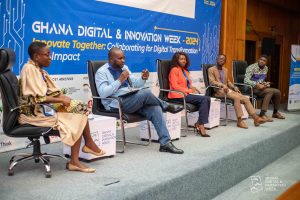
Following the keynote, I attended a panel discussion on “Building Digital Infrastructure for National Development,” featuring Kwame Asante, CEO of Ghana Telecommunications Authority, and Dr. Ama Pomaa Boateng, Deputy Minister for Communications. They explored how investments in high-speed internet, mobile connectivity, and data centers are crucial for accelerating digital transformation. W were particularly struck by their focus on rural digital inclusion and how closing the digital divide will be critical to Ghana’s growth in the coming years.
Day 2: Innovation in Action
Day two focused on innovation, with several sessions dedicated to entrepreneurship, start-ups, and tech innovation across sectors like agriculture, healthcare, and finance. Ethel Cofie, founder of Women in Tech Africa, delivered a standout presentation on the role of women in driving tech innovation in Ghana. She provided insights into how women entrepreneurs are creating impactful tech solutions that solve real-world problems, while also advocating for greater gender inclusivity in the tech space.
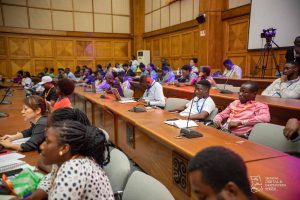
A key session of the day was “Innovation for Social Good,” where Yaw Owusu-Addo, founder of GreenTech Ghana, and Dr. Elsie Effah Kaufmann, a prominent educator and innovator, discussed how innovation can be harnessed for societal impact. They highlighted inspiring initiatives like tech-driven solutions for sustainable agriculture and digital platforms that improve healthcare delivery in underserved communities. These discussions reinforced the idea that innovation should not only drive economic growth but also improve the quality of life for all citizens.
One of our favorite sessions was the start-up showcase, where local entrepreneurs presented their tech-based solutions to real-world problems. Start-ups like FarmDirect, a platform connecting smallholder farmers to markets, and MedDigit, a telemedicine app revolutionizing healthcare access, were among those that caught my attention. The creativity and passion of these innovators showcased Ghana’s potential to be a major player in the African start-up ecosystem.
Day 3: The Future of Digital Policy and Regulation
The final day centered on the critical role of policy and regulation in shaping the future of Ghana’s digital economy. Dr. Edward Boateng, CEO of the Ghana Investment Fund for Electronic Communications (GIFEC), led a session on “Creating a Robust Policy Framework for Digital Innovation.” He emphasized the need for regulations that support innovation while also ensuring data privacy, cybersecurity, and consumer protection.
Another enlightening panel featured Nana Osei Bonsu, CEO of the Private Enterprise Federation, and Dr. Kojo Frempong, a digital policy consultant. They discussed the balance between fostering an environment that encourages digital innovation and establishing policies that protect the public. Discussions around cybersecurity and data protection were particularly relevant as Ghana moves toward greater digital inclusion.
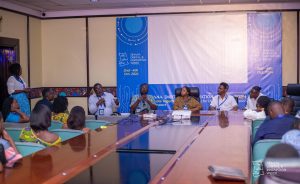
Key Takeaways
- Digital Infrastructure is Key: Building a solid digital infrastructure is essential to Ghana’s digital transformation. Investment in connectivity, data centers, and digital services will bridge the gap between urban and rural areas and ensure equal access to digital tools and services.
- Empowering Women in Tech: Women are at the forefront of Ghana’s tech innovation landscape, but more needs to be done to support and amplify their voices. Initiatives that empower women in tech will have a significant impact on the future of innovation in Ghana.
- Innovation for Social Impact: Technology should not only focus on economic growth but also contribute to solving social challenges. From agriculture to healthcare, innovation in Ghana is increasingly being directed toward improving lives and uplifting communities.
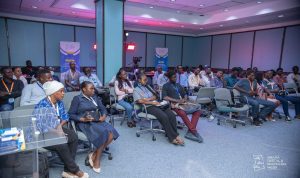
4. The Role of Policy: As Ghana continues its digital journey, the role of forward-thinking policy cannot be overstated. Ensuring data protection, cybersecurity, and creating a regulatory environment that fosters innovation will be vital for sustained growth.
5. Supporting Start-ups: The Ghanaian start-up ecosystem is vibrant and full of potential. With the right support, these innovative companies can scale to address critical issues, create jobs, and contribute to the country’s digital economy.
Final Thoughts
 The Ghana Digital and Innovation Week conference was a truly enlightening experience. It showcased not only the incredible advancements being made in Ghana’s digital space but also the potential for technology to address social, economic, and environmental challenges. We left the conference feeling inspired by the innovative spirit that was evident in every session and conversation.
The Ghana Digital and Innovation Week conference was a truly enlightening experience. It showcased not only the incredible advancements being made in Ghana’s digital space but also the potential for technology to address social, economic, and environmental challenges. We left the conference feeling inspired by the innovative spirit that was evident in every session and conversation.
As we reflect on the event, we are excited about the future of Ghana’s digital economy and the role that technology will play in shaping a brighter, more inclusive future. The conference highlighted that while challenges remain, the momentum is there, and the opportunities are boundless.

This year’s Ghana Digital and Innovation Week was a testament to the power of collaboration, innovation, and policy in driving a digital future. We are already looking forward to next year’s event and seeing how the seeds planted this year will grow.

